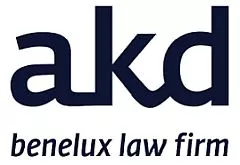- within Media, Telecoms, IT and Entertainment topic(s)
- in United States
In the sports industry, an athlete's identity is more than just a name or a face; it is a valuable asset. Athletes are constantly in the spotlight due to sponsorships and media coverage, but with fame comes the need for protection. The right to one's image or name is crucial for both privacy and control over how the image or name is used. Personality rights safeguard athletes from unauthorised publication and distribution of their images or names, which is of particular importance given the frequent commercial and media exploitation professional athletes face.
What are personality rights?
Personality rights refer to the legal protections that safeguard an individual's identity, including their image, name and other distinctive attributes, from unauthorised use. These rights help individuals, especially public figures, maintain control over how they are represented in public and commercial settings.
The right to one's image, often referred to as "portrait rights" grants individuals control over the use of their image. It prohibits anyone from capturing, publishing, or distributing one's image without their explicit consent. It is closely linked to the right to privacy and the protection of personal data, and it protects individuals from unwanted intrusions into their private lives. For public figures, such as professional athletes, this right is of particular importance.
This fundamental right ensures that no one can use an athlete's image, whether it be photos, videos, or other media, without their consent. For athletes, this protection is vital to prevent unauthorised commercial exploitation, especially in advertisements, merchandising, and promotions.
Similarly, the right to one's name follows the same principles. No entity can use an athlete's name for commercial gain without proper authorisation.
Commercial use vs. public information
While an athlete's image may be used to inform the public about sports events, it may not be commercially exploited without permission. This means that advertisements, promotional materials, and branded content featuring an athlete cannot be used without their explicit consent. If their image or name is used without consent, athletes have the right to take legal action to protect their interests.
Key considerations
- Athletes cannot prevent their image or name from being shown during public events unless it concerns their private life.
- Whether it's a sponsor or a media company, anyone who uses an athlete's image or name for profit must ask for consent.
- The GDPR strengthens the protection of athletes' image and name rights by imposing strict rules on the processing of their data.
- Athletes must stay vigilant and enforce their rights to protect their personal brand.
It is essential for public figures and athletes to be aware of their rights and the legal mechanisms available to protect their personality rights, and to proactively defend their rights against commercial exploitation.
In today's world, athletes are not just competitors; they are brands. Protecting that brand starts with controlling their image and name. Stay informed and ensure that your image and name is used in the way you want it to be. For more information, legal advice, or assistance, you can contact Paul Van den Bulck, Olivier Belleflamme, or Sara Ataei.
In the sports industry, an athlete's identity is more than just a name or a face; it is a valuable asset. Athletes are constantly in the spotlight due to sponsorships and media coverage, but with fame comes the need for protection. The right to one's image or name is crucial for both privacy and control over how the image or name is used. Personality rights safeguard athletes from unauthorised publication and distribution of their images or names, which is of particular importance given the frequent commercial and media exploitation professional athletes face.
What are personality rights?
Personality rights refer to the legal protections that safeguard an individual's identity, including their image, name and other distinctive attributes, from unauthorised use. These rights help individuals, especially public figures, maintain control over how they are represented in public and commercial settings.
The right to one's image, often referred to as "portrait rights" grants individuals control over the use of their image. It prohibits anyone from capturing, publishing, or distributing one's image without their explicit consent. It is closely linked to the right to privacy and the protection of personal data, and it protects individuals from unwanted intrusions into their private lives. For public figures, such as professional athletes, this right is of particular importance.
This fundamental right ensures that no one can use an athlete's image, whether it be photos, videos, or other media, without their consent. For athletes, this protection is vital to prevent unauthorised commercial exploitation, especially in advertisements, merchandising, and promotions.
Similarly, the right to one's name follows the same principles. No entity can use an athlete's name for commercial gain without proper authorisation.
Commercial use vs. public information
While an athlete's image may be used to inform the public about sports events, it may not be commercially exploited without permission. This means that advertisements, promotional materials, and branded content featuring an athlete cannot be used without their explicit consent. If their image or name is used without consent, athletes have the right to take legal action to protect their interests.
Key considerations
- Athletes cannot prevent their image or name from being shown during public events unless it concerns their private life.
- Whether it's a sponsor or a media company, anyone who uses an athlete's image or name for profit must ask for consent.
- The GDPR strengthens the protection of athletes' image and name rights by imposing strict rules on the processing of their data.
- Athletes must stay vigilant and enforce their rights to protect their personal brand.
It is essential for public figures and athletes to be aware of their rights and the legal mechanisms available to protect their personality rights, and to proactively defend their rights against commercial exploitation.
In today's world, athletes are not just competitors; they are brands. Protecting that brand starts with controlling their image and name. Stay informed and ensure that your image and name is used in the way you want it to be. For more information, legal advice, or assistance, you can contact Paul Van den Bulck, Olivier Belleflamme, or Sara Ataei.
The content of this article is intended to provide a general guide to the subject matter. Specialist advice should be sought about your specific circumstances.




